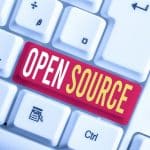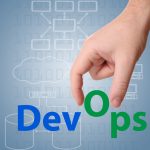Almost half of developers think ML projects take up too much time

Before developers can generate machine learning insights, they need to configure different aspects of complex infrastructure, such as machine resource management, monitoring, and feature extraction, but many think this is too time consuming.
New research from Civo finds that of over 500 developers surveyed, 48 percent believe that ML projects take up too much time.
Open source skills could help drive UK economic growth

Open Source contributed 27 percent of the UK tech sector's Gross Value Added (GVA) in 2022, according to a new report from OpenUK, the non-profit organization representing the UK’s open technology sector.
The report finds that there are 3.2 million GitHub accounts in the UK and 8,200 UK contributors to open source projects in the past year. There have also been1,700 new contributors to open source projects in the last 12 months, representing 20.7 percent growth.
Software engineers feel unable to speak up about wrongdoing at work

A new report from software auditing company Engprax finds 53 percent of software engineers have identified suspected wrongdoing at work but many are reluctant to report it due to fear of retaliation from management.
Of those who have spoken up, 75 percent report facing retaliation the last time they reported wrongdoing to their employers.
CI and CD -- what they are and why they're not the same [Q&A]

You'll often hear CI (continuous integration) and CD (continuous deployment) mentioned in the same breath, often as CI/CD, and indeed both are part of improving the quality, speed and efficiency of software development.
However, Stephen Atwell, principal product manager at Armory, argues that they shouldn't be considered as related functions. We spoke to him to find out why.
'Policy as code' considered vital to maintain and secure cloud software

A new survey of over 280 developers and technical decision makers finds two-thirds dealing with major flaws in homegrown authorization efficiency, security, and app performance. As a result, most organizations (83 percent) plan to invest more into policy as code as a solution.
In case you're unfamiliar with the concept, policy-as-code is an approach to policy management in which policies are defined, shared, updated and enforced using code rather than relying on manual processes.
New service aims to make cloud more accessible

With so many different platforms and technologies available, navigating the world of cloud computing can be tricky.
In a bid to make things simpler Acorn Labs is announcing public beta availability of its cloud developer platform Acorn, a service that makes it simple for anyone to run software in their own cloud sandbox and easily share their creations.
Why a new architecture is needed for open banking API platforms [Q&A]

While much literature has been written on best practices for systems architecture, the desired outcomes have been as elusive as they have been sought after. The de-facto standard for enterprise systems that exists in reality is often closer to A Big Ball of Mud.
Very rarely is an organization’s technology (the infrastructure, the software or the set of systems powering the organization) planned as the state in which we see it today. All early systems need to scale, and most companies in the growth phase don't have the bandwidth to deal with this graciously.
How IT can cut its power bills and help save the planet [Q&A]

It's estimated that enterprise IT accounts for around 1.5 percent of the world's energy usage, making it a major contributor to greenhouse gas emissions.
But a simple switch to using more efficient solutions rather than simply throwing everything into the cloud could make a significant difference. We spoke to Dr. Jim Webber, chief scientist at native graph database leader Neo4j and visiting professor at Newcastle University, to find out more.
Does the new OWASP Top 10 accurately reflect the threats now facing APIs? [Q&A]

Application Programming Interfaces (APIs), which act as the glue connecting systems and applications together, are now the number one attack target for cyber criminals. Attack methods have changed over recent years, however, prompting the OWASP API Security Project to revise its API Security Top 10 of attack types for 2023.
But do the tactics, techniques and procedures (TTPs) it covers still serve as a blueprint for defense? We spoke to Jason Kent, hacker in residence at Cequence Security, to find out if the top 10 is liable to see defenders take too narrow an approach.
How AppSec can help enterprises make sense of cloud-native development [Q&A]

Today's application security landscape is complex and can lead to teams spending a lot of time hunting down vulnerabilities. Add in the move to cloud-based development and there's an even higher volume of code to deal with
We spoke to Shahar Man, CEO at Backslash Security, to learn more about what AppSec needs to look like in this world and how it ties in with greater use of the cloud.
Meeting the challenges of API security [Q&A]

In today's increasingly digitally-centered organizations, the development of products, services, and solutions increasingly depends on the implementation of Application Programming Interfaces (APIs).
APIs have become the building blocks of modern business applications and are critical to digital transformation -- so much so that API security has become a boardroom issue.
One in eight open source downloads have known and avoidable risks

This year has seen twice as many software supply chain attacks as 2019-2022 combined and one in eight open source downloads today pose known and avoidable risks.
The latest State of the Software Supply Chain Report from Sonatype, which logged 245,032 malicious packages in 2023, also shows that 96 percent of vulnerabilities are still avoidable.
Enterprises lack strategy for DevOps automation

Investments in DevOps automation are delivering significant benefits, including a 61 percent improvement in software quality, a 57 percent reduction in deployment failures, and a 55 percent decrease in IT costs.
However, a new survey from Dynatrace shows that just 38 percent of organizations have a clearly defined DevOps automation strategy.
Developers turn to generative AI despite security risks

According to 800 developer (DevOps) and application security (SecOps) leaders surveyed, 97 percent are using GenAI technology today, with 74 percent saying they feel pressured to use it despite identified security risks.
The research from software supply chain management company Sonatype shows 45 percent of SecOps leads have already implemented generative AI into the software development process, compared to only 31 percent for DevOps.
Why enterprises must modernize their apps [Q&A]

Most organizations have some level of legacy apps. These can be hard to maintain and inhibit initiatives like data sharing. But the modernization process is challenging due to staffing, tools, training, and other issues.
We spoke to EvolveWare CEO Miten Marfatia to find out how enterprise IT can ease this complex process and ensure they get it right.
Recent Headlines
Most Commented Stories
BetaNews, your source for breaking tech news, reviews, and in-depth reporting since 1998.
© 1998-2025 BetaNews, Inc. All Rights Reserved. About Us - Privacy Policy - Cookie Policy - Sitemap.